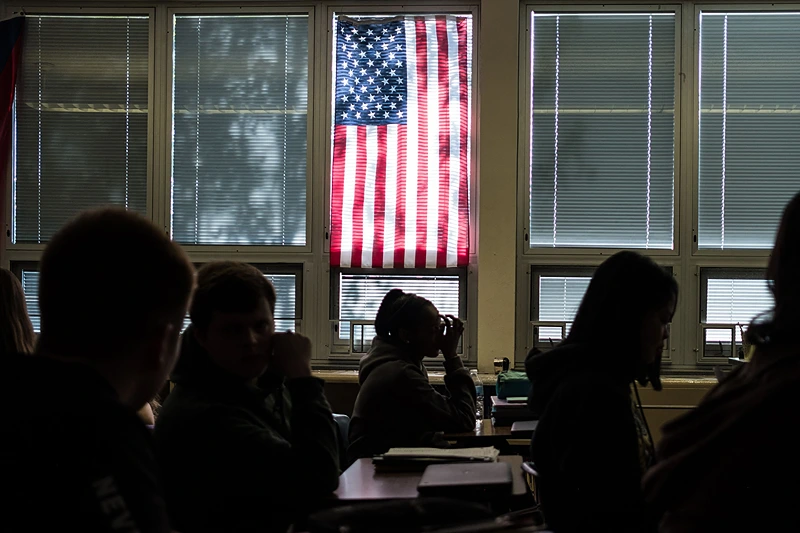
OAN Brooke Mallory
UPDATED 1:36 PM – Thursday, May 4, 2023
According to reports, the Colorado Education Association (CEA) passed a resolution that affirms their belief that “capitalism inherently exploits children, public schools, land, labor, and resources.”
“CEA believes that capitalism requires exploitation of children, public schools, land, labor, and/or resources. Capitalism is in opposition to fully addressing systemic racism (the school to prison pipeline), climate change, patriarchy, (gender and LGBTQ disparities), education inequality, and income inequality.”
However, a screenshot of an earlier version of the resolution shows that they had originally called for the replacement of capitalism with a “new equitable economic system.” This has now been taken out of their statement.

“We are constantly using band-aids and minor reforms to make things better, which is good, but the system itself is the problem, and it needs to be named,” said a statement under the resolution.
The Lion, which first obtained the document, received a screenshot of the original version from a former federal officer.
A disgruntled ex-CEA member who had left the association in disgust over the resolution’s passage was allegedly who sent the federal official the original screenshot.
Lauren Stephenson, the CEA’s director of communications, was notified of the screenshot by The Lion, who subsequently acknowledged the resolution’s authenticity. She then forwarded the edited version of the new assembly-approved resolution back to the Lion.
In an earlier decision, the CEA chose not to release the resolution due to “process” and privacy concerns.
Bryan Lindstrom, a college history professor, was who introduced the Marxist resolution.
Following the passage of the final altered version of the resolution, Lindstrom retweeted a statement claiming that it “allows CEA members to publicly advocate and lobby for anti-capitalist policies at the CO Capitol.”
The consistent pattern of teacher unions promoting far-left ideologies is continued by this resolution. Racial and social justice have been dubbed a “pillar” of the National Education Association’s (NEA) activities, the largest teachers union in the country.
“For us at the NEA, education justice must be about racial justice, it must be about social justice, it must be about climate justice. It must be about all of those things,” said President Becky Pringle. “For our students to be able to come to school ready to learn every day–We can never think of education as an isolated system because everything connects to our students’ ability to learn. So, we have to necessarily talk about housing justice, food inequality, and the reality that we all just went through a global pandemic together and of course it was the most marginalized communities that were already suffering from the inequities in every single social system in this country and every country.”
The most recent results of U.S. national test scores indicated substantial losses in math and reading, revealing an overall learning loss among American students.
According to recent reports, math skills have plunged to their lowest levels ever, while reading scores dipped to levels not seen since 1992 for fourth and eighth graders nationwide. Between 2019 and 2022, students’ math scores in the fourth grade dropped by an average of five points. For eighth graders, the score decreased by eight points.
Education Secretary Miguel Cardona responded to the national test results saying that the data shows how institutions need to step up their efforts and use the billions of funds that Congress provided schools as a response to the pandemic to help pupils recover.
Some parents are reportedly coming down on educators and blaming them for the drop in scores. They claim that teachers’ consistent use of facial masks since 2020, as well as growing emphasis on gender, race, and queer lessons are overriding the math, science, and English lessons that guardians feel their children should be excelling in.
“…With masks come muffling and, even more problematic, no mouth visibility, something that has a significant impact on how well we can decipher what someone says. While masks may keep us safe, from a linguistic perspective, they open up a can of comprehension worms,” said Valerie M. Fridland, Professor of Linguistics at the University of Nevada, Reno.
Stay informed! Receive breaking news blasts directly to your inbox for free. Subscribe here. https://www.oann.com/alerts

